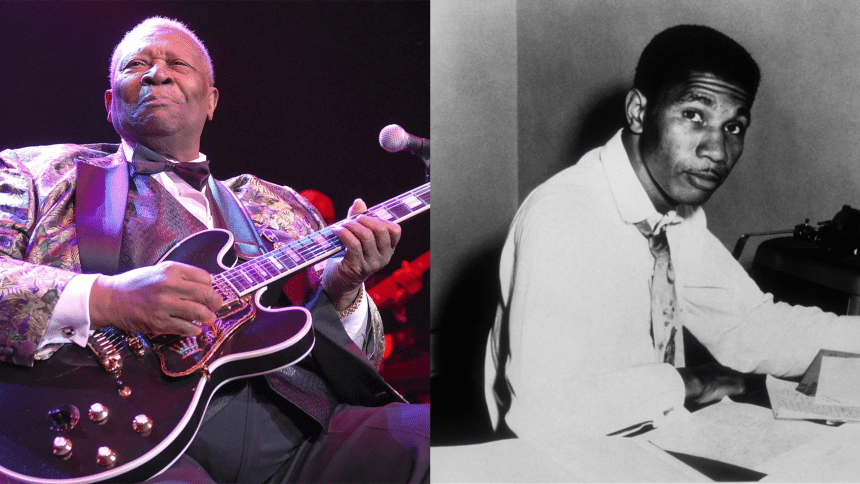The Mississippi legislature has passed a resolution honoring the lives and legacies of late world-famous bluesman B.B. King and civil rights icon Medgar Evers ahead of when the duo would have turned 100.
Senator John Horhn, D-Jackson, introduced SCR 508 to the floor on Friday to honor the legacies of the two Mississippi icons. The resolution cruised through both chambers this week. Both men were honored for their contributions to the state with a centennial celebration at the state capitol on Tuesday.
The legislation highlighted King’s unique ability to play the electric guitar better than just about any other blues performer. King, the Leflore County native who faced obstacles as a Black musician, would have turned 100 on September 16. He passed away on May 15, 2015, at the age of 89.
“B.B. King introduced a sophisticated style of soloing that influenced countless blues electric guitar players. His fluid string-bending, shimmering vibrato, and staccato-picking set him apart,” the resolution further stated.
“AllMusic hailed him as ‘the single most important electric guitarist of the last half of the 20th Century.’ He earned the nickname ‘The King of Blues’ and was one of the ‘Three Kings of Blue Guitar,’ alongside Albert King and Freddie King, none of whom were related.”
King’s musical journey began in juke joints and local radio stations. He later lived in Memphis, Chicago, and Las Vegas, and as his fame grew, he toured the world extensively. His soulful voice and expressive guitar playing resonated with audiences across generations.
During his lifetime, King recorded more than 50 albums and won 15 Grammy awards, including the Recording Academy’s Lifetime Achievement Award in 1987. In 1986, he earned a star on the Hollywood Walk of Fame. In 2003, Rolling Stone magazine ranked King No. 3, behind only Jimi Hendrix and Duane Allman on the list of “100 Greatest Guitarists of All Time.”
Evers, who was born in Decatur in 1925, became a star in the civil rights movement as Black Americans sought equal rights. A decorated U.S. Army combat veteran during World War II, Evers was the NAACP’s first field secretary in Mississippi.
After returning from war, Evers held several leadership roles in civil rights groups. He recruited volunteers, led demonstrations, and organized voter registration drives. The civil rights hero even staged boycotts of gas stations that refused to welcome Black customers.
“Evers dedicated his life to the defense of civil rights in Mississippi and the United States. His impactful work included efforts to overturn segregation at the University of Mississippi, expand voting rights, and promote economic opportunities for Black communities,” a portion of the resolution’s text reads.
“Despite the challenges, Evers’ legacy lives on. His life and death have inspired numerous works of art, music, and film. As a veteran, Evers was buried with full military honors at Arlington National Cemetery.”
Evers was assassinated on the front porch of his Jackson home on June 12, 1963. He was posthumously honored with the Presidential Medal of Freedom last May. The civil rights icon would have turned 100 on July 2.
“Be it further resolved, that this resolution be presented to the surviving descendants of B.B. King and Medgar Evers, forwarded to the B.B. King Museum and Delta Interpretive Center, the Mississippi Museum of History and Myrlie Evers Home National Monument, the Mississippi Civil Rights Museum, the Board of Trustees of the Mississippi Department of Archives and History, and be made available to the Capitol Press Corps,” the resolution concludes.








